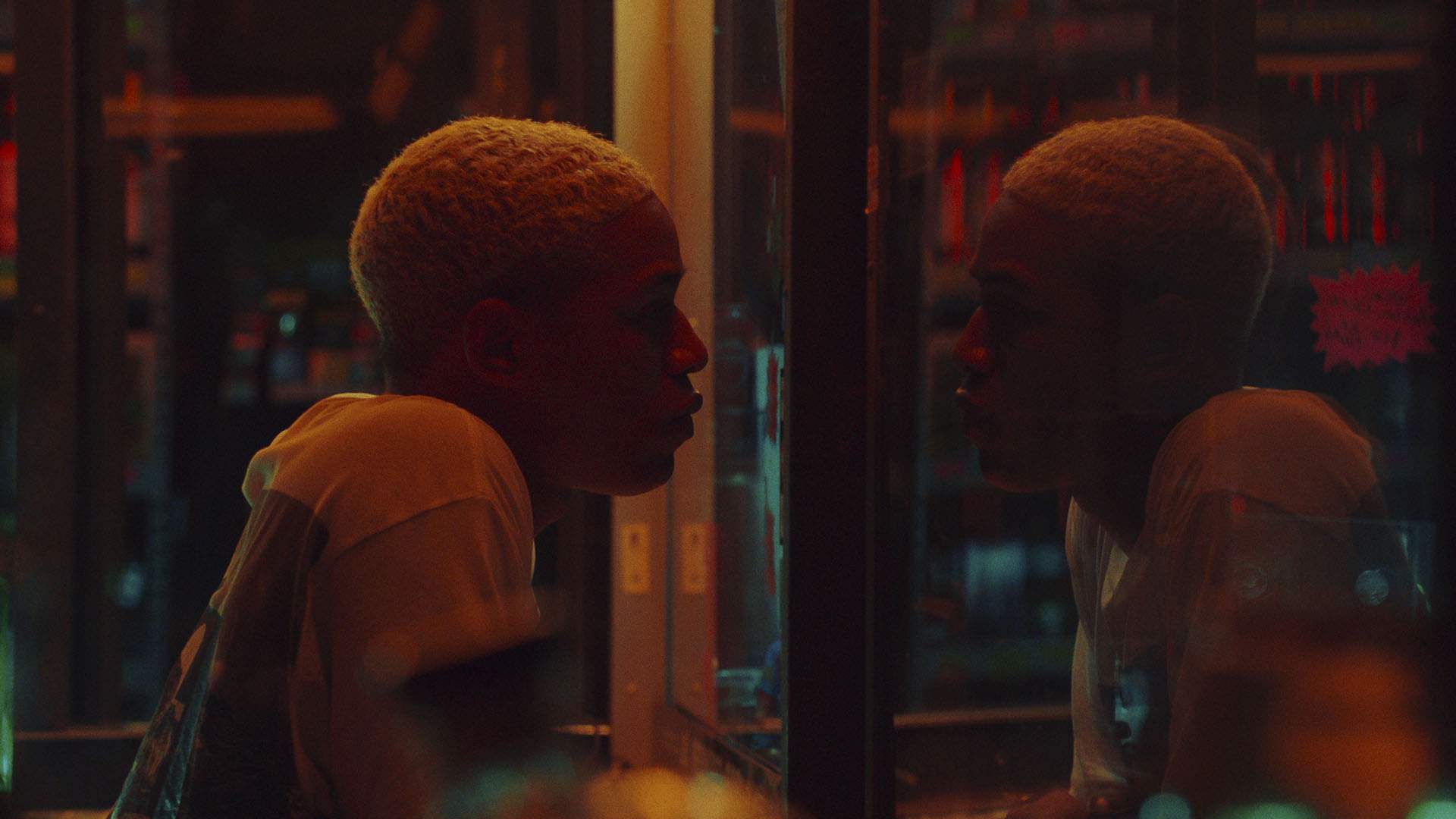Waves
Following the ups and downs experienced by an African American family, this magnificent drama is stunningly visceral, stirring and profound.
Overview
UPDATE, November 6, 2020: Waves is available to stream via Neon and iTunes.
The sight of streaming sunlight, South Florida's scenery and a blissful young couple shouldn't hit like a gut punch, but in Waves, it does. When this magnificently moving film opens, it does so with high-schooler Tyler Williams (Kelvin Harrison Jr) and his girlfriend Alexis Lopez (Alexa Demie). They sing and drive with carefree exuberance — buoyed by both youth and first love — with their happiness not only captured by fluid, enticing camerawork that circles around and around, but mirrored by the use of Animal Collective's upbeat, energetic 'FloriDada' on the soundtrack. Waves continues its sinuous cinematography and alluring tunes as it follows Tyler through a snapshot of his teenage existence, too. Viewers meet his upper middle-class family, who dote on his every word. We witness his prowess on the school wrestling team, where he's a star. We see how infatuated he is with Alexis, and vice versa. But, as intoxicatingly sensory as all of this is — and as expertly calibrated by writer/director Trey Edward Shults to convey exactly how Tyler is feeling — its glow fades quickly when the agonised glimmer in Tyler's eye becomes evident. It's only there when he's alone, looking in the mirror, but it's a picture of heartbreak.
As played with a complicated mix of charm, arrogance, sadness, anger and vulnerability by the excellent Harrison, Tyler navigates his seemingly content life with an outward smile, while balancing on a knife's edge. He doesn't completely know it, though, although he can clearly feel the pressure mounting. Forceful in reminding him that African Americans are "not afforded the luxury of being average", his father Ronald (Sterling K Brown) is well-intentioned, but also stern and domineering. He pushes Tyler to be better at every turn and, when they train together for the teen's wrestling matches, even gets competitive. Stepmother Catherine (Hamilton's Renée Elise Goldsberry) is far more gentle; however the focus placed on Tyler compared to his younger sister Emily (Taylor Russell) is always obvious in her household. And so, when an injury threatens to undo his sporting future and his romance with Alexis breaks down, Tyler makes a series of self-sabotaging decisions. One leads to tragedy — and the fact that this isn't a joyful movie becomes devastatingly apparent.
Waves is a graceful movie, though, even as it relentlessly hits hard. It starts with a feverish, frenzied outburst of adolescent life, pivots on a shocking and shattering night, then switches its focus to Emily in the painful aftermath — and it does so nimbly, compellingly, and with poise and precision. This is a film that's carefully crafted to not just tell several intertwined tales, but to express the bustling emotions that go with them. It's also exactingly engineered to ride the crests of the Williams' family's lives, sink into the troughs, and bob back up and down again as each given moment calls for. It is called Waves, after all. And, as that well-chosen name nods to, it follows the sadness that ripples through the lives of its characters, their attempts to keep afloat however they can, and all the other ebbs and flows they endure. They drift apart and glide back together, and Shults provides an immensely affecting account of their experiences, with the feature always raw and resonant as it grapples with loss, love, and the chaos and reality of being a Black teenager in America today.
In Emily's section of the story, charting the above path from her perspective comes with a swift change of style: switching aspect ratios, easing back the pace, and taking a quieter, calmer, more lyrical approach. Where Waves' window into Tyler's life is frantic, fast-paced and, as the drama intensifies, often cloaked in lurid hues from parties and police lights, the film prefers slower, smoother and softer imagery for his sister, who must try to regain some sense of normality after the movie's big turning point. She's always been in Tyler's shadow, so the transition makes emotional sense, too. She's more reserved, accustomed to watching on rather than being the centre of attention, and well-versed in soaking in what slivers of happiness she can. Accordingly, as the Williams' family tries to recover from Tyler's life-changing actions, Emily makes a new connection with classmate Luke (Lucas Hedges), helps him deal with his own traumas and allows herself to be herself.
Best known for Netflix's Lost in Space remake and horror flick Escape Room so far, Russell is just as phenomenal as the more overtly powerful Harrison. In fact, Waves proves a superbly acted movie all-round, with Shults wrangling intricate, intimate and expressive performances out of his entire cast. That shouldn't come as a surprise given the filmmaker's resume. But, while he already has the stellar Krisha and effective It Comes at Night to his name, this is his best work yet. With exceptional assistance from his usual cinematographer Drew Daniels, his own deft editing with Isaac Hagy (Guava Island), and a magnetic score by Trent Reznor and Atticus Ross — and a willingness to cover weighty issues such as race relations, the US legal system and engrained discrimination as well — every second of Shults' film pierces and probes as it cuts to the heart of Tyler and Emily's tales, and the impact upon their loved ones, school and community. The result: a stunningly visceral, stirring and profound drama that rushes, peaks and rolls like its moniker suggests, sweeping audiences along for every single moment.





